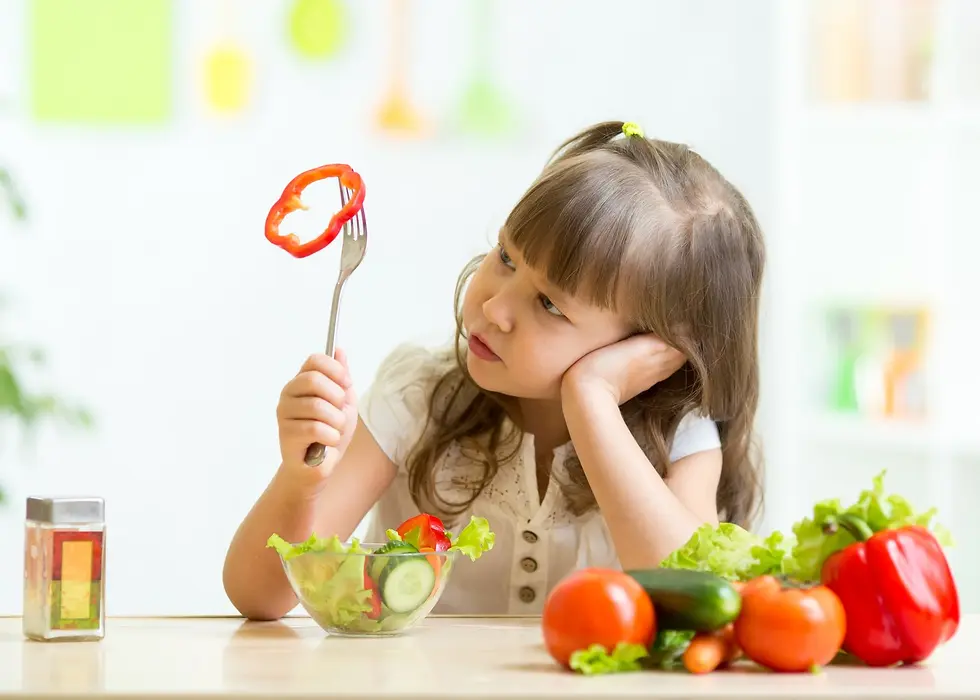The Secret to Healthy Kids: It Starts with You
- Staff
- Aug 6, 2025
- 3 min read

A parent’s job is never done.
Parenting is the most important job in the world. It’s a job that brings the highest highs and the lowest lows. The job can be a total minefield, especially when it comes to food.
One minute you’re the boss, the next your kid is demanding neon cereal shaped like cartoon characters and you’re questioning your life choices in the snack aisle. Advertisers aren’t helping, and even the so-called experts can’t agree. Honestly, it’s enough to make you want to just order pizza forever.
We all know that junk food isn’t doing anyone any favors. Sugar, weird chemicals, preservatives—none of it’s helping our kids grow up strong, no matter how many commercials try to convince us otherwise.
What’s a parent supposed to do? You don’t need to become a nutritionist overnight. There’s plenty of solid advice and apps out there (some of them are actually fun, too).
Here’s Florida Experience Magazine’s no-nonsense, real-world guide for getting your kids to eat something besides chicken nuggets shaped like dinosaurs:
1. You’re In Charge Yes, it sounds obvious, but you’re the grown-up. You buy the groceries. Your house, your rules. If kids had it their way, it’d be fries for breakfast, lunch, and dinner. So, stock the kitchen with stuff you actually want them to eat. They’ll whine a little at first—trust me, they always do. But if there’s only apples and grapes in the snack drawer, guess what? That’s what they’ll eat. No one ever died from lack of cookies. (At least, not that I’ve heard.)
2. Bring Them In On It Getting kids involved works wonders. Let them pick out veggies at the store. Make it a game and download Yuka or some other app that shows what’s really in their favorite snacks and see who can find the healthiest option. At home, let them graze, but only on what’s available. Bonus points if you let them cook dinner once a week. It might be a mess, but hey, at least they’re learning.
3. Family Meals: Not Just For TV Shows Remember the good old days when everyone sat down to eat together? Yep, I barely do either, but apparently it’s a healthy family routine that is in need of a comeback. Studies say families who eat together have better eating habits and are healthier overall. Plus, you can actually talk to your kids. Kind of a win-win, right?
4. Start ‘Em Young If you can, get them on the healthy eating train early. Offer different foods, textures, flavors, and don’t freak if they hate broccoli the first time. Make it a rule: one bite of everything, no drama. Don’t turn dinner into the Hunger Games, though. If they really can’t stand something, let it go. Pick your battles.
5. Plan Ahead (Because Chaos Isn’t Fun) Does prepping for the week sound boring? Maybe. But trust me, it saves your sanity. Pick a day, make a plan, and if your kid’s old enough, bring them into it. Chop up fruits and veggies, freeze some meals, figure out what’s for dinner ahead of time. Future you will be grateful.
6. Walk the Walk You can’t expect your kid to eat spinach while you’re scarfing down chips in the car. Sorry, but they’re always watching. Lead by example and eat at the table, don’t skip meals, and maybe lay off the fast food (at least when they’re looking).
7. Don’t Get Fooled by the Junk Look, nobody’s saying you have to ban birthday cake or outlaw Halloween candy. Life’s too short. But you don’t want sugar and red dye #5 to become their main food groups either. Try not to make sweets a reward, as they’ll just end up associating treats with feeling good, and that’s a whole other mess down the road.
And about those additives and preservatives? The news isn’t getting better. The American Academy of Pediatrics (AAP) policy, “Food Additives and Child Health,” states that some food additives may interfere with hormones, growth and development and put children in danger of obesity. Yikes. The less of that stuff, the better.
You don’t have to be perfect. Just aim for “pretty good most days” and don’t let the guilt monsters win. Your kids will thank you. Eventually. Probably when they’re adults.



Comments